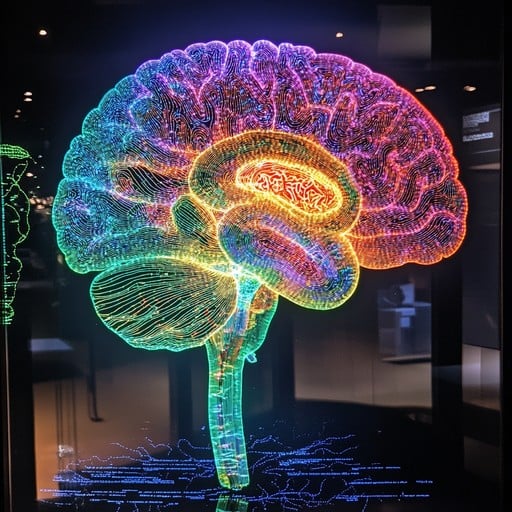What is Savant Syndrome?
Savant Syndrome is a rare condition in which individuals with developmental disorders, particularly autism spectrum disorder (ASD), or brain injuries possess extraordinary mental abilities or skills that far exceed the average person’s capabilities. These remarkable abilities often manifest in specific domains such as art, memory, mathematics, music, and spatial skills. The term “savant” comes from the French word for “learned person.” It highlights the seemingly innate knowledge and expertise that these individuals exhibit.

Key Characteristics
While the specific characteristics can vary widely from person to person, several common traits are often observed in individuals with Savant Syndrome:
- Exceptional Memory: Many savants possess an astounding capacity for rote memory. They can recall vast amounts of information with remarkable accuracy, including dates, facts, figures, and intricate details.
- Musical Prodigies: Music is a common area of exceptional talent. Savants may demonstrate the ability to play complex musical pieces after hearing them only once. They can possess perfect pitch and an innate understanding of musical structure.
- Artistic Abilities: Savants may exhibit remarkable artistic talent in painting, sculpting, or drawing. They can create incredibly detailed and realistic artworks, often from memory.
- Mathematical Skills: Some savants display extraordinary mathematical abilities, such as rapid calculation, prime number identification, and complex mental arithmetic.
- Spatial Skills: These abilities may include exceptional map-reading skills, the ability to mentally manipulate objects in three dimensions, and an uncanny sense of direction.
- Language Challenges: Individuals with Savant Syndrome may experience difficulties in language comprehension, expression, or social communication.
- Social Interaction Difficulties: Social challenges, including difficulties in understanding social cues and forming relationships, are common among individuals with Savant Syndrome.
- Repetitive Behaviors: Savants may exhibit repetitive behaviors or routines, a characteristic often associated with autism spectrum disorder.
The Enigmatic Link to Autism

Savant Syndrome is most frequently observed in individuals with autism spectrum disorder. It’s estimated that around 10% of individuals with ASD have Savant Syndrome. However, it’s crucial to note that Savant Syndrome is not exclusive to autism. It can also occur in individuals with other developmental disabilities or as a result of brain injury or illness.The precise neurological mechanisms underlying Savant Syndrome remain a mystery, but theories suggest it involves a combination of factors, including:
- Brain Compensation: One theory posits that damage or impairment in certain areas of the brain may lead to compensatory growth or enhanced function in other areas.
- Hyper-Systemizing: This theory suggests that savants possess an intense drive to identify patterns and create systems, which can lead to exceptional abilities in rule-based domains like mathematics or music.
- Enhanced Sensory Processing: Some researchers believe that savants may have heightened sensory sensitivity, allowing them to perceive and process information in a more detailed and nuanced way.
Derek Amato: A Modern-Day Musical Miracle
Derek Amato’s story is one of the most compelling examples of acquired Savant Syndrome.
Before a life-altering accident, Derek was an ordinary man without any particular musical inclinations. However, a severe head injury transformed his life in an extraordinary way. After hitting his head in a swimming pool, Derek awoke to find himself inexplicably gifted with the ability to play the piano. Despite having no prior musical training, his hands danced across the keys, producing beautiful melodies and complex harmonies. He described seeing black and white blocks guiding his hand movements. This newfound ability propelled him into a career as a musician, captivating audiences worldwide with his spontaneous and heartfelt performances.
Derek’s case is particularly intriguing because it demonstrates that Savant Syndrome can emerge suddenly following brain trauma. It raises profound questions about the latent potential that may exist within the human brain and the conditions that can unlock it.

Other Notable Cases
Derek Amato’s story is not unique. Throughout history, there have been numerous documented cases of individuals with Savant Syndrome who have astonished the world with their extraordinary talents.
- Kim Peek (1951-2009): Known as the “Megasavant,” Kim Peek possessed an unparalleled memory. He had memorized the contents of thousands of books and could recall vast amounts of information on a wide range of topics. He served as the inspiration for the movie “Rain Man.”
- Leslie Lemke (1952-2011): Born prematurely with multiple disabilities, including blindness, Leslie Lemke displayed extraordinary musical abilities. He could play any piece of music flawlessly after hearing it only once.
- Stephen Wiltshire (born 1974): An autistic savant with an exceptional talent for drawing, Stephen Wiltshire is known for his ability to create incredibly detailed and accurate panoramic cityscapes entirely from memory after only a brief observation.

The Broader Significance of Savant Syndrome
Savant Syndrome challenges our traditional notions of intelligence and ability. It highlights the fact that intelligence is multifaceted and that individuals can possess extraordinary gifts in specific areas, regardless of their overall cognitive abilities. By studying about the syndrome, we gain valuable insights into the workings of the human brain and its potential for both impairment and exceptionality. Moreover, understanding Savant Syndrome can help us to develop more effective educational and therapeutic approaches for individuals with developmental disorders. By recognizing and nurturing their unique talents, we can empower them to reach their full potential and lead fulfilling lives.

What Do We Know About It Until Now?
Savant Syndrome remains an enigmatic phenomenon, but its study offers profound insights into the complexities of the human brain. The stories of individuals like Derek Amato, Kim Peek, and Stephen Wiltshire inspire us to appreciate the diversity of human abilities and to recognize the extraordinary potential that lies within each of us. As we continue to unravel the mysteries of Savant Syndrome, we can hope to unlock new ways to support and empower individuals with developmental disorders, enabling them to share their unique gifts with the world.
You might have missed many other fascinating pieces of information, follow Maybemiss.com to stay updated on things that may be old but feel incredibly new!

















Discussion about this post